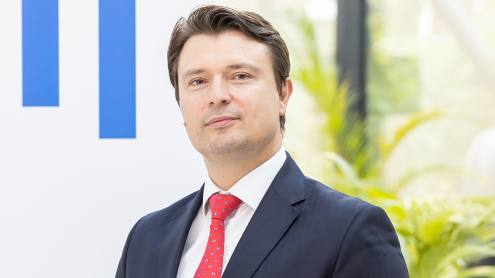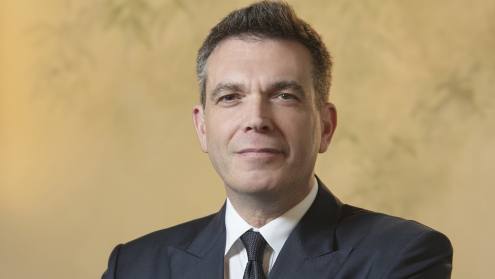Back in March, France’s Suez, a water services company, agreed to buy Pennsylvania-based GE Water & Process Technologies in a $3.4bn deal that will create the world’s third largest industrial water treatment firm.
Suez has traditionally dominated Europe’s municipal water markets, and the GE tie-up was seen as a way to expand its international presence and ramp up its industrial and digital capabilities. GE will give it access to sectors such as mining, pharmaceuticals and microelectronics, and companies including Exxon-Mobil, Total, Samsung and Pfizer.
Under the terms of the transaction, Suez will acquire GE in a 70/30 joint venture with Canada’s Caisse de dépôt et placement du Québec. The transaction is expected to close in the third quarter of 2017.
International potential
“About two-thirds of our business is in Europe, and our strategy is to grow internationally where the potential is much higher for our business,” says Clémentine Tassin, Suez’s head of treasury and capital markets. “GE Water has a very diversified footprint across the world, and in most industrial sectors that are complementary to Suez. GE is also a leader in smart technologies and digital.”
GE Water has some 2500 patents and operates 12 research and development centres, showing the company’s strong focus on innovation, according to Ms Tassin. The global industrial water market is worth about €95bn annually and is growing at about 5% per year.
The all-cash deal was initially financed through a fully underwritten bridge facility, arranged through Société Générale, Morgan Stanley, HSBC and Mitsubishi UFJ Financial Group. The former two also advised on the merger and acquisition (M&A) transaction. Suez intended to incrementally reduce the facility through the capital markets, split between a €750m capital increase, a €1.2bn senior secured note issued in the weeks following the transaction, and finally a €600m perpetual hybrid transaction planned for April.
In designing the financing structure, Suez aimed to ensure it would maintain a net debt to Ebitda (earnings before interest, tax, depreciation and amortisation) ratio below 3%, which has been the company’s policy since 2008. The senior bonds, rated A3 by Moody’s, were placed on March 27 and comprised a €500m tranche due in April 2025 and €700m tranche due in 2029.
The company was keen to complete the hybrid deal ahead of the French presidential election, the first round of which was set for April 23, and to get to the market before a busy calendar of French public holidays and central bank meetings in the early summer. “The volatility on the market was such recently that we wanted to be prepared to move quickly if conditions were favourable,“ says Ms Tassin.
Suez appointed BNP Paribas, Deutsche Bank, Morgan Stanley, MUFG and Sociéte Générale as joint bookrunners for the deal. It was Suez’s second subordinated bond, its first being issued to fund its purchase of Spain’s Agbar in 2010.
Hybrids are often used to finance M&A because the relatively high yield attracts investors, and because they are ranked as half-equity and half-debt by rating agencies, which can stave off ratings pressure following the transaction. In addition, hybrids are treated as bonds for tax purposes, so the interest costs are tax deductible.
Extra clause
Moody’s assigned the bond a Baa2 rating, two notches below the senior debt, reflecting its subordination and the fact Suez can elect to defer coupons on a cash cumulative and compounding basis, a regular feature of a hybrid debt. In addition, Suez inserted an additional clause, giving it the right to call the bond if the deal with GE fails to complete before December 2017.
“For the hybrid, we decided that we would like to be able to call if the deal does not go ahead, because the issuance was specifically for the acquisition,” says Ms Tassin. “We didn’t have the same for the senior note because we can always use that funding for general business purposes.”
Following a call with bankers on April 10, Suez decided to proceed with a perpetual non-call seven-year transaction, with initial price thoughts of 3.25%. The order book grew steadily and by early afternoon reached about €3bn, with more than 250 accounts involved. Strong demand allowed the leads to issue a first coupon guidance of 2.875 to 3%, which was later revised to 2.75% to 2.875%. It finally priced at the top of that range.
The tight pricing meant Suez kept its subordination premium below 200 basis points, often considered a benchmark for hybrid deals. Books closed with €2.3bn of orders, and 71% of allocations went to asset managers.
“We were happy with the pricing and the confidence shown by investors in the deal and in our name,” says Ms Tassin. “The market has really understood the strategic fit between Suez and the GE Water transaction.”







